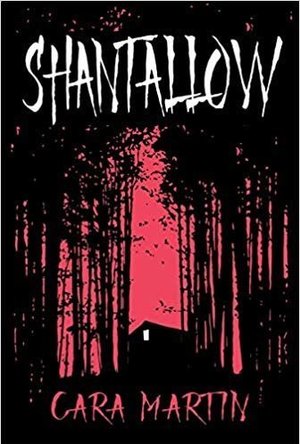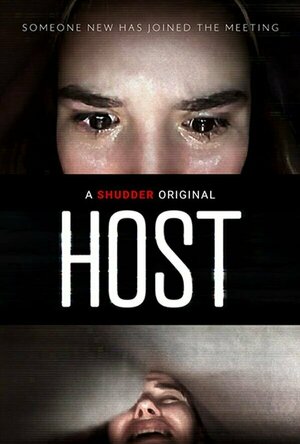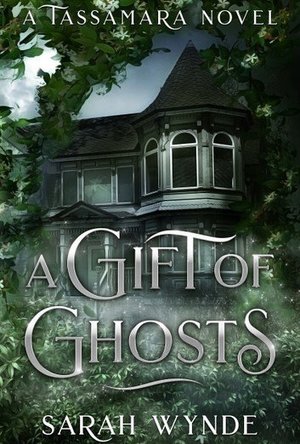
50 Bars to Blow Your Mind
Lonely Planet and Ben Handicott
Book
From the people who have been delivering trustworthy guidebooks to every destination in the world...

Rhyme Genie - The Ultimate Rhyming Dictionary
Reference and Music
App
Free your creative spirits with the world’s first dynamic English language rhyming dictionary with...
Heather Cranmer (2721 KP) rated Shantallow in Books
Aug 31, 2019
I felt like the plot of Shantallow was a little confused to begin with. It started out as a teen love story between to high school kids gone wrong thanks to jealousy. However, after about thirty percent through the book, it quickly became a supernatural horror story about an evil haunted house. I thought this would focus on the nightmare that the main character, Misha, has about Tanvi. The nightmare, to me, only seems brushed upon. This didn't take away my enjoyment from the story though. I will admit that the whole love story in the beginning was a bit slow, and I did find myself wondering if I should continue. I'm really glad I persevered because after the love story, this book really takes off. It was as if Shantallow sank it's teeth into my attention span and didn't let go. I couldn't wait to see what would happen next in the evil house known as Shantallow. The creepy factor was definitely there throughout!
The ending of Shantallow felt a little as if the author didn't know how to end the book. It seemed rushed and too quick to end without being explained. Although Shantallow didn't end in any cliffhangers, I was still left with unanswered questions. Perhaps Shantallow will end up being a series, and my questions about the house will be answered.
The diversity of characters in Shantallow was done fantastically. I also enjoyed each of the characters once this book got going. Tanvi was an interesting character throughout the book. Although I could picture all the characters in my mind, Tanvi was the easiest one to bring alive in my head. She felt so realistic and like she could be someone I know. Misha comes across as really selfish, jealous, and controlling to being with. However, he redeems himself during his time in the Shantallow house with how protective he is over everyone. Lauren was my favorite character. I loved scenes that she was in. She seemed like such a sweet innocent kid.
Trigger warnings for Shantallow include violence, jealousy, murder, death, attempted murder, profanity, sex between teens (although not graphic), evil spirits, and underage drinking.
Despite the hurried ending, Shantallow really is a good read. It's got a very spooky plot and great characters once you get past the love story. I would recommend Shantallow by Cara Martin to older teens and adults aged 17+. If you love scary stories that will keep you up late at night reading with the lights on, Shantallow is the book for you! It definitely made my nights scarier (but I enjoy being scared)!
--
(A special thank you to Xpresso Book Tours for providing me with an eBook of Shantallow by Cara Martin in exchange for an honest and unbiased review.)

Buy Me a Pie! - Grocery Shopping List for Family
Productivity and Lifestyle
App
***** Featured by Apple App Store in Food & Drink and Productivity categories. ***** The Next Web:...

Ghost EVP Radio - Paranormal
Entertainment and Lifestyle
App
The Ghost EVP/EMF Radio has been developed for exciting paranormal detection and exploration. We've...
Lee (2222 KP) rated Host (2020) in Movies
Sep 2, 2020
Where Host differs from Unfriended is in its timely release. Filmed over a 12 week period during lockdown, and taking place entirely within the timeframe of a 60 minute Zoom call, Host portrays what we’ve all experienced in recent months – the socially distanced meetup with friends or colleagues online. And then it throws in some supernatural jump scares to terrify us into never wanting to participate in one ever again!
Host follows six friends, as they logon for their weekly Zoom catch-up. Only this time, Haley has suggested that they also hold an online séance, and has invited Irish spiritualist Seylan to join in and guide them through the experience. Before Seylan joins the chat though, we get to spend some time with the friends and you can’t help but feel at ease with the familiarity of seeing a group of people chatting together on screen, each in a different location. Even more so if you’re watching all of this play out on a small screen, as I was.
It’s clear from the start though that some of the group aren’t looking to take the séance too seriously, with one of them suggesting that they also play a drinking game. Whenever Seylan says the phrase “astral plane”, they decide they will try and down a drink without her realising what they’re up to. Consequently, it’s not long before one of the group has managed to ‘disrespect the spirits’, and when Seylan gets cut off the chat following connection issues, all manner of strange things begin happening to each of the group.
A number of them are in darkened rooms, so obviously you find yourself straining your eyes, searching for something out of the ordinary in every corner of the screen. There are the usual strange noises, lights flashing, with the occasional rational explanation behind it. And then there are plenty of big scares too – practical, effective effects that really pack a punch and are truly terrifying.
Important to all of this is the believability of our cast. Thankfully, their performances all feel believable, their friendship and conversation natural. I did find Teddy, the only male of the group, to be pretty annoying, but luckily he only appears briefly at the beginning and at the end of the movie.
Host came about after director and co-writer, Rob Savage, made a Zoom prank, which went viral after sharing on Twitter back in April. It’s a fortunate side effect of the pandemic that filmmakers have been forced to explore new and creative ways of making movies. And Host is an excellent, shining example of just how well that can pay off.

Wine-Searcher
Food & Drink and Lifestyle
App
FIND, COMPARE AND BUY WINES USING THE WORLD’S #1 WINE RESOURCE: The Wine-Searcher app is a genius...
Haley Mathiot (9 KP) rated Soul Catcher (The Outsider #1) in Books
Apr 27, 2018
Genre: Sci-fi, Romance
ISBN: 9780982175682
Rating: 4
Livia hasn't had a perfect life—in fact she hasn't even had a good life. It all started when her father died when she was young, then got worse when her mother and baby brother died in a fire that she may or may not have started. She also starts painting pictures of evil horrible demons in her sleep, and is forced to burn the pictures and ban them… but one demon escapes, and comes for her.
She finds out that he had been pursuing her in every life—she's been reincarnated? what?—and has killed her every time for the past 200+ years. She also finds out that she has a soul mate, (who jumped into the body that the demon had used to hurt her, and now she can't look at him without getting sick) but has hidden herself from him in almost every life, subconsciously, because of something that happened in the past. She and Ian set off to find answers and to kill the pig-faced demon… for good this time. But this time ends up being the most dangerous life she's ever lived.
Soul Catcher was an addicting read. I would have read it in one sitting if I'd been allowed. It actually stuck with me all night and I'm pretty sure I dreamed about it.
I liked the philosophy of the world that Livia lived in. There were soul jumpers, like Ian and Dante, who could jump into any body he needed to be in at the time. There were soul catchers like her, who could banish dark spirits and talk to the light ones. The plot itself was very complex, and every chapter added something new to the story. One thing that made Soul Catcher stand out was how Livia and Ian's love grew. It wasn't immediate you're-my-soul-mate-you're-perfect-for-me kind of love. It was a lot more real than that. Livia starts by trying to avoid him at all costs, but ends up having to go on a trip with him to find out about their pasts. You could say they "bonded," or you could say that Ian finally got to her—even while he was in the body she hated passionately—either way, their love was real enough to be believable.
I really liked Livia, even though she had her downfalls and her insecurities. She was definitely the bad-ass heroine we know and love: slightly sarcastic, very obnoxious, stubborn as an ox, and head over heels in love but unwilling to admit it because she sees it as a weakness. Ian was a great character: he'd have to be to put up with Livia. He'd do anything for her, is dying for her to love him, thinks she is the most beautiful girl in the world—and even bends so low as to trick her into kissing him (she didn't appreciate that.). But he's all light-hearted, fun to be around, with a sexy Irish accent.
I really liked the ending. The whole story had good humor and good comic relief, but the ending was sweet, cute, and funny. It pulled everything together nicely, and left you with a smirk on your face. I say take it to the beach with an umbrella and lemonade. Or whatever other drink you like best.
Content/recommendation: some sex and sexual references, heavy language, ages 18+
~ Haleyknitz
Kara Skinner (332 KP) rated A Gift of Ghosts in Books
Jun 11, 2019
My rating: 4 out of 5 stars
Goodreads Rating: 4.01 out of 5 stars
Page Count: 190 pages
One little paragraph about spirit energy ruined Akira’s career as an academic professor. Now she has two options: get a job at General Directions, a mysterious company in Florida that wants to interview her for some reason, or teach high school physics.
She’d rather work in Hell than teach high school physics.
Luckily, General Directions offers her a job that includes a salary increase and also the freedom to research whatever she wants as long as she signs a two-year contract.
What she doesn’t know is they don’t want her for her scientific research. They want her because she sees ghosts. Her boss, Zane, and the company’s CEO (and Zane’s dad), Max, want her to contact Zane’s mother and nephew, who passed, but may still be in the ghost world.
Now Akira is living in a town full of psychics where she has a haunted car and a haunted house– luckily, only friendly spirits. Her boss, Zane, is more of a friend than a manager. Which is all right with her, because she can’t help but be incredibly attracted to him.
But when Akira finds out that Zane’s mother has turned into an evil spirit, tensions rise. How can she make Zane understand that she can’t talk to his mother because the mother might kill Akira in the process?
This book was incredibly good. Way better than I was expecting, especially after I realized that Zane was going to be Akira’s boss. Normally I don’t like boss-employee romances because it feels icky. But Zane really didn’t manage Akira at all, and was a boss in name only. Not only that, but Akira seduced Zane, which was a refreshing change of pace.
Zane and Akira were both incredibly sexy and complemented each other so well. I loved the two of them together and the way Zane desired to protect her while also respecting her ability to protect herself was amazing.
The entire town, which is an homage to Eureka, was adorable and pulled me right into the world. I also really liked all the ghosts Akira encountered. They were complex enough to feel like real people even though they were for the most part side characters.
The ghostlore was intriguing as well and I enjoyed watching the discoveries Akira made about the afterlife as the story unfolded. Despite being able to see ghosts her entire life, her knowledge about ghosts was limited because of her overprotective father who forbade her to talk to ghosts or think of them as anything other than leftover energy.
The climax was satisfying for the most part. However, for a few minutes, Zane doubted that Akira could see ghosts, which was really weird. For most of the book, he didn’t doubt her ability at all, especially after testing her ability to see ghosts many times. But suddenly he doubts it? His reasoning for it didn’t fly for me and it was pretty annoying. But once he shook off his out-of-character skepticism, I was enjoying the story again.
The only other problem I had in the book was towards the beginning where there were a few random formatting marks visible. Not enough to really mess with the story, but it was a little distracting nevertheless.
But overall, this was an awesome, slightly spooky romance that’s perfect for October.
Louise (64 KP) rated Sunflowers in February in Books
Jun 28, 2018
This is a UK YA debut novel by Phyllida Shrimpton and very reminiscent of the lovely bones by Alice Sebold. When I read the synopsis of this book I knew that I was going to have to read it. The exploration of life after death fascinates me, are there spirits? is there really life after death? This book had depth to it and has some very important messages, it covers a lot on grief and guilt.
Our story starts out pretty much as the synopsis states…Lily is 15 years old and is on a bank of grass and has no idea how she got there. The first thing she notices is her purple converse laying in a puddle, her mum is going to be so mad that she has ruined them especially as she begged and pleaded with her for them. Thankfully the Police turn up just in time, hopefully they will be able to take her home, It’s only when they ignore her that she starts becoming alarmed, she can’t seem to touch them or communicate with them. One of the policemen radio in that they have found her, but it can’t be her as they keep ignoring her, when she looks in the same direction as the Police she sees herself lying in a ditch DEAD! For some reason Lily is still around in spirit, she stands next to her mother and father when they identify her body, she even attends her funeral. Being a spirit is pretty lonely, watching everyone grieving for her not being able to console them but worst of all is being emotionally numb, it’s only one evening when her twin brother has an out-of-body experience in the night that she finds she can actually communicate to the outside world. She wants one chance to say goodbye to everyone properly and then maybe she will finally rest in peace.
This was a very ambitious concept to try to pull off for a debut novel and I think she might have just done it. There were some aspects of this book that I was sceptical of, but other than that it was an enjoyable read. I liked how much grief was tackled and the ways in which people cope.The way she was drawn to people when they were thinking about her was a nice touch which meant we got to see several characters which broke any monotony up. This did delve in the stages of grief. We had Denial, anger,guilt,depression and acceptance and you could see each of these stages in the characters throughout the book. I also liked the message of not taking things for granted because you never know when your life might end and you wish you could have done things differently. Lily could see her family falling apart and her mission was to stop that from happening – they needed to be together and move on with their lives but she also need to learn to forgive so she too could move on.
Overall I enjoyed this book it had a lot of important messages and dealt with a delicate subject pretty well. I would say this is the YA of ‘The Lovely Bones’.




